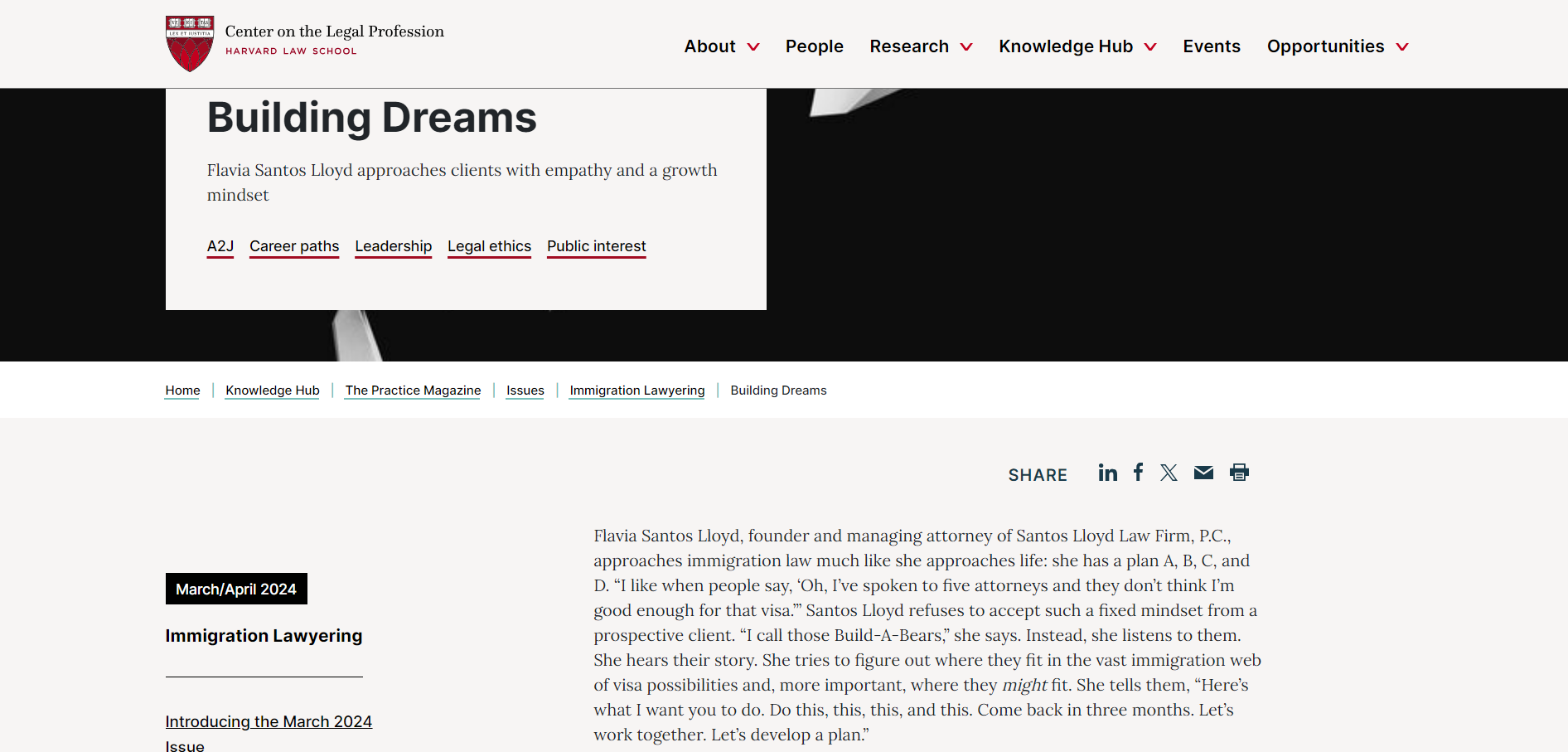Last Updates
Our Services and Team
Santos Lloyd Law Firm, P.C. has established many practice areas, where each consists of sub-areas of specialization. Our lawyers are equipped with in-depth legal knowledge and know-how of every jurisdiction covering the following areas:
Business
Family
Entertainment
Athletes
Student
Other Legal Services
Other legal representation services in pursuing your lawful Non-Immigrant Visa or permanent residence.
Our Team
Our immigration attorneys have extensive experience in immigration law and can guarantee you competent and effective legal representation in pursuing your lawful Non-Immigrant Visa or permanent residence.

Flavia Santos Lloyd, Esq.
Managing Partner
Attorney Flavia Santos Lloyd is passionate about immigration law and the community she serves. As an immigrant herself, Ms. Santos Lloyd can relate to her clients’ experience during the immigration process. With focus on quality customer service, zealous and diligent representation of her clients, and a proven track record, she has served a wide range of her clients’ immigration needs.
Ms. Santos Lloyd is a Certified Specialist in Immigration and Nationality Law by the State Bar of California and a member of the American Immigration Lawyers Association (AILA), the American Bar Association (ABA), Orange County and Los Angeles County Bar Associations, Orange County Hispanic Bar Association, among other organizations, and she is an active member of the State Bar of California.
Kris Quadros-Ragar, Esq.
Partner
Attorney Kris Quadros-Ragar is enthusiastic and dedicated to helping others pursue their dreams through immigration. An immigrant herself, Kris brings a deeply personal perspective to her work, rooted in both lived experience and a rich international academic background.
Ms. Quadros-Ragar holds a Law Degree from the Federal University of Santa Catarina (UFSC) in Brazil and a Master of Laws (LL.M.) with a certificate in Business Law from the prestigious University of Southern California (USC) Gould School of Law in Los Angeles.






























